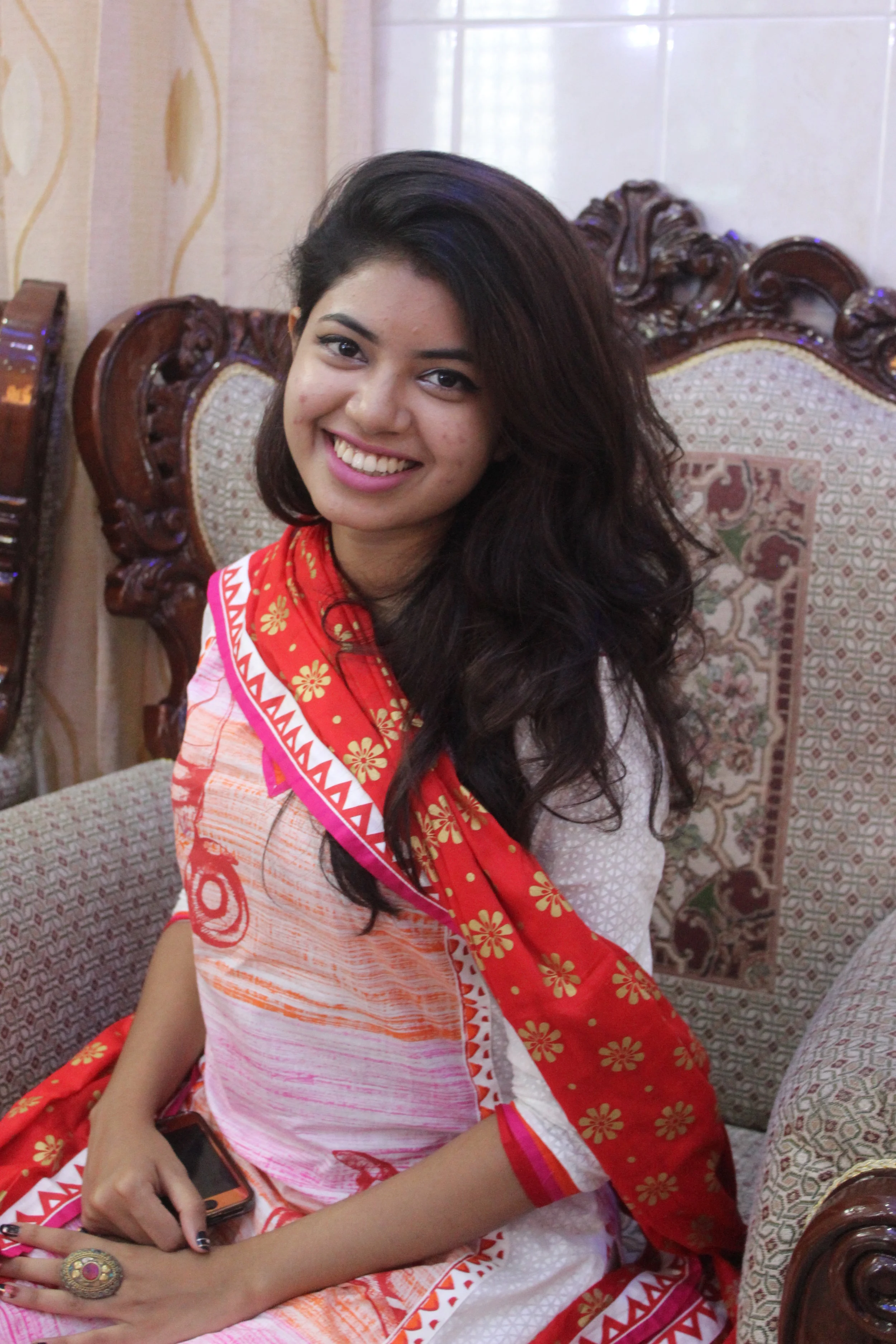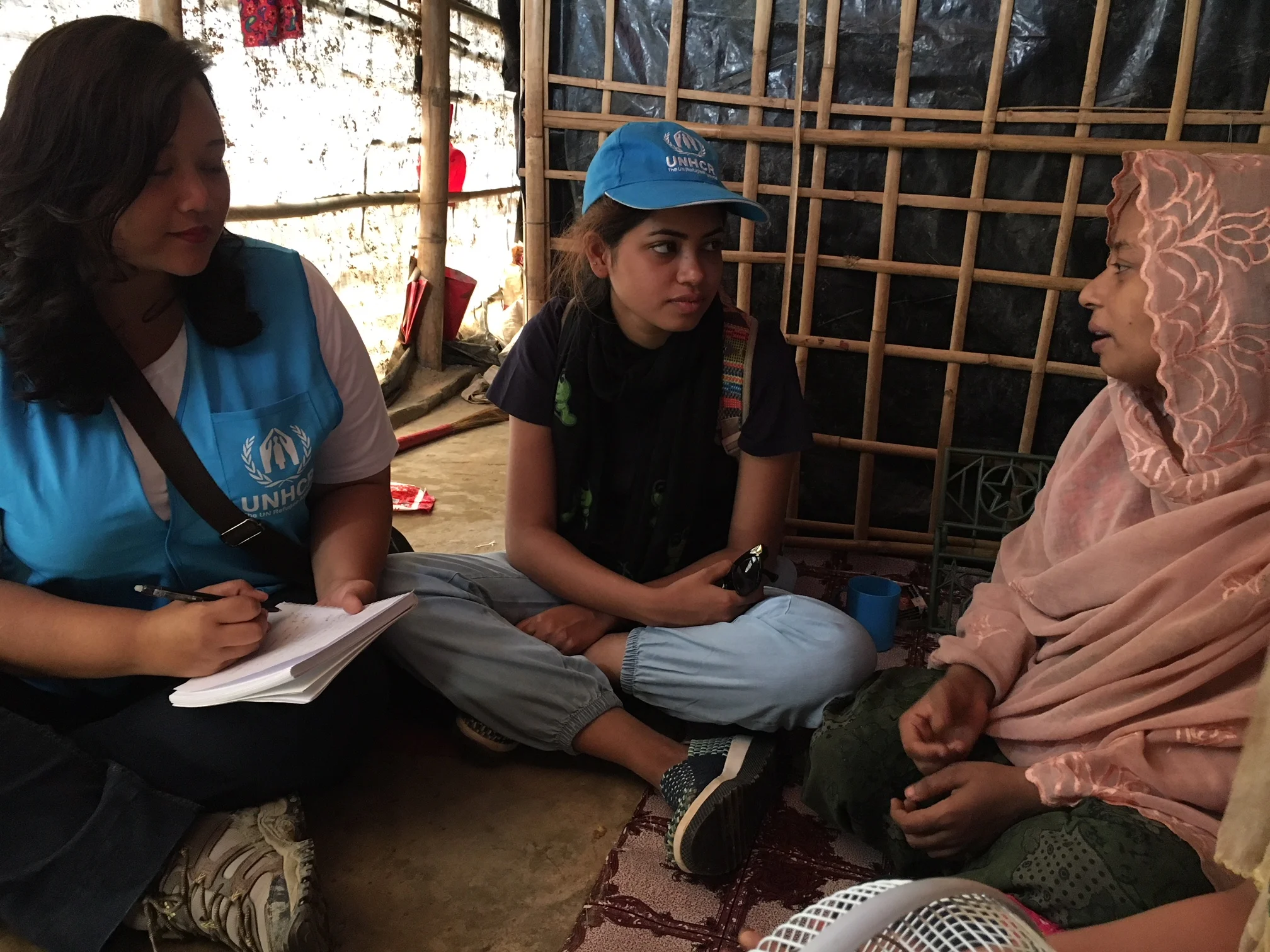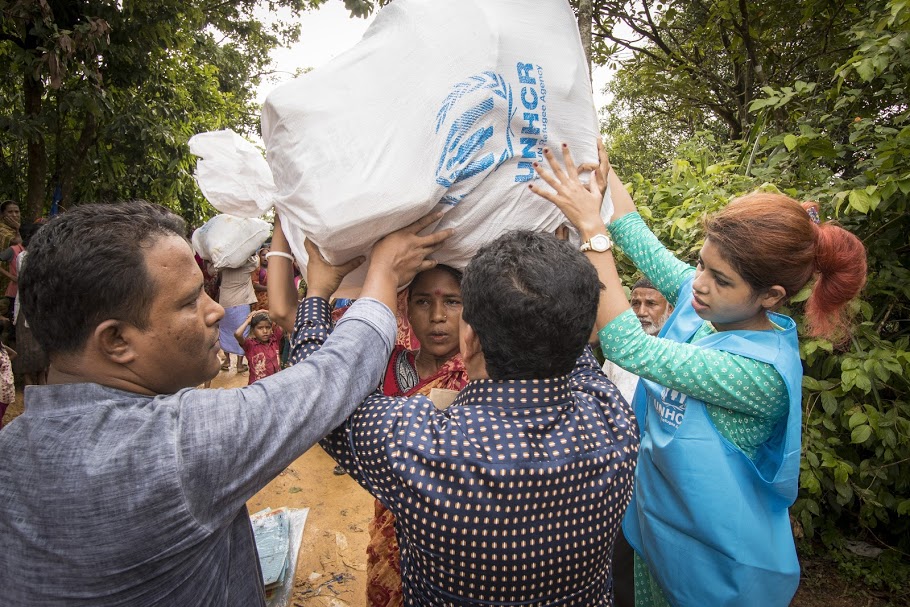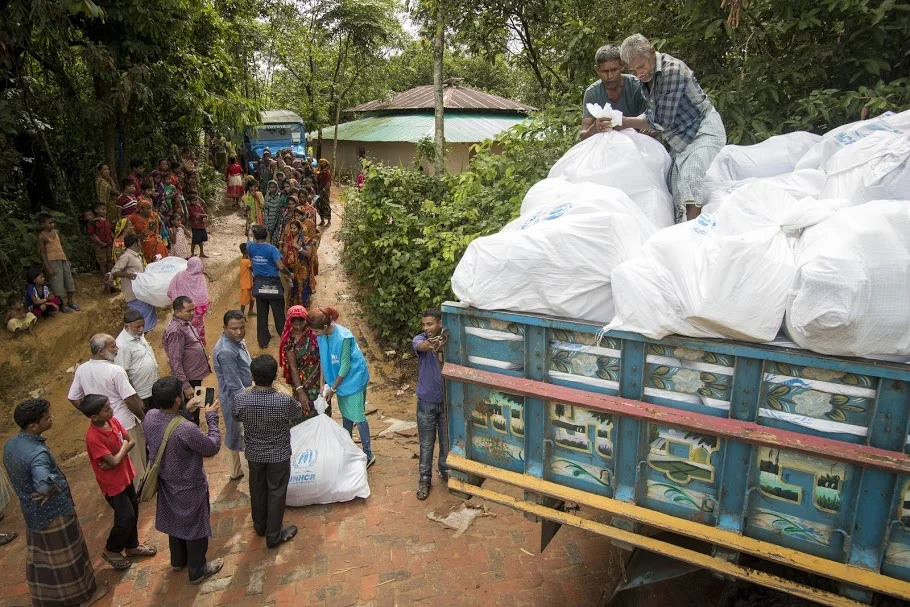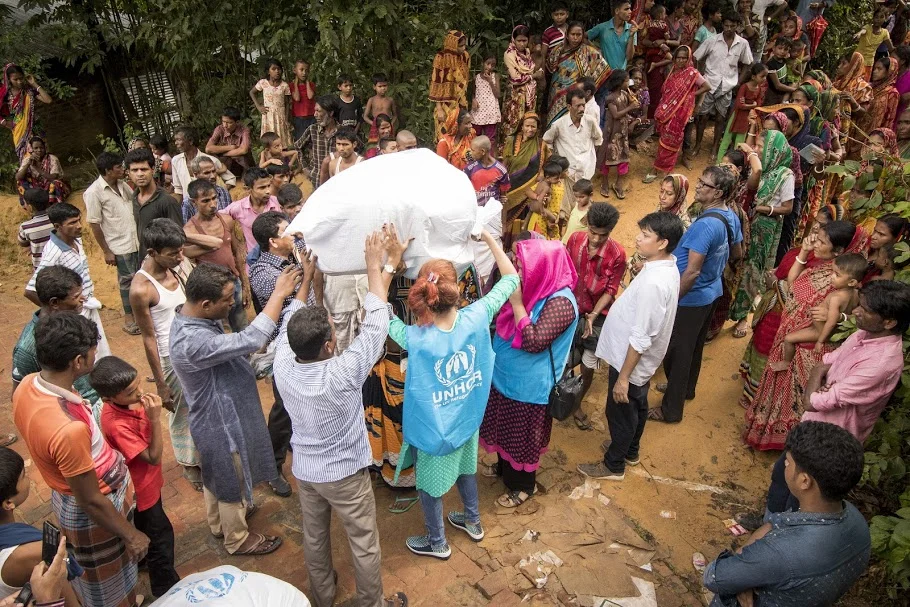Sarus Alumna Working With RefugeeS in Bangladesh
This entry is part of a forthcoming series of Sarus stories written by Madeleine Chaisson, MA Candidate from the Clinton School. She spent the last three months interviewing 45 Sarus alumni, staff, and board members and recording their stories. This first story is with Tanzil Ferdous (Bangladesh-Myanmar Internship Exchange 2016).
Tanzil and I were able to connect over Skype one evening after she finished a busy day at the UNHCR office in Chittagong. Even after a long day of intense spreadsheets and on the ground organizing, her eloquence, poise, and ease was overwhelming.
Her background in economics and development studies from the Asian University for Women (AUW) laid an ideal foundation for her participation in the inaugural Sarus exchange program between Bangladesh and Myanmar. With 16 countries represented, AUW presents a unique preparation for students interested in peacebuilding and participating in Sarus. During her tenure at AUW, Tanzil worked with a local community center and the university’s community service team to deliver direct service in Chittagong’s slums and feeding centers. She joined the country’s largest volunteer network and quickly rose to the position of District President, and currently serves as an advisory board member. Her curiosity into the realm of social services was never satiated and she continued to explore various projects saying, “you don’t know until you try."
Tanzil’s interest in the political conflict concerning the Rohingya was a driving factor in her application to Sarus. Her understanding of technical issues concerning development, coupled with the exposure she knew Sarus could provide, would make her unstoppable. Following Sarus, she conducted independent research to learn more about the Rohingya. She networked with a UNHCR partner photographer who introduced her to willing interview participants, providing first-hand knowledge of the situation.
Non-violent communication is the most important technique that Tanzil learned during her time with Sarus. She says that knowing such a concept exists has opened her eyes to a number of other communication techniques. Tanzil also described a shift in her personal language, especially a decreased use of regional slang. Her view of the famous Sarus circle meetings is interesting in that she saw them a platform, an opportunity to apply their learned skills and to express feelings in real time. This is something she continues to do, as applicable, in her current work.
She talks about Sarus quite a bit with her colleagues and offers her perspective on Myanmar. At the conclusion of our interview, Tanzil said that she did not expect Myanmar to be so beautiful nor for the people to be so welcoming. She sees it as a place where she could settle down for a few years and be involved in various peacebuilding endeavors. Tanzil says that the communication techniques she learned at Sarus have now become a part of her life, a habit that she no longer things about. She draws on Sarus and what she learned to bring her peace in her stressful, high-stakes work at UNHCR.

